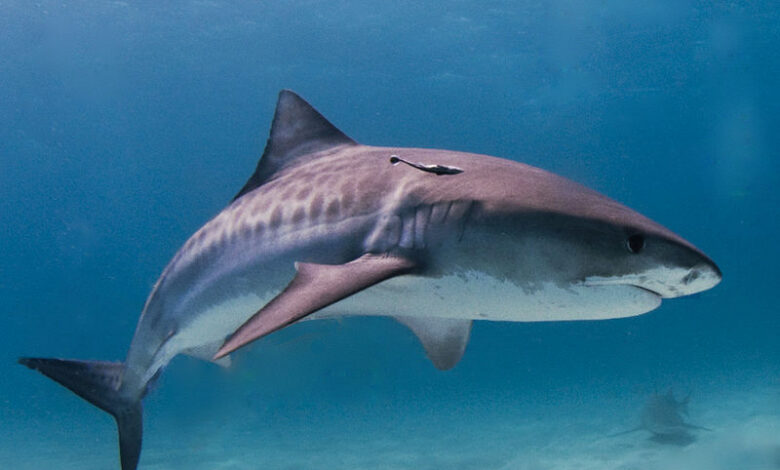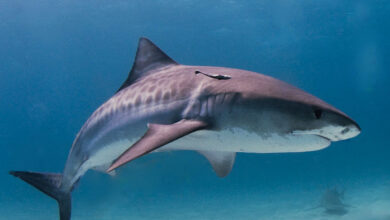
A scientific study prepared by a committee of environmental researchers from the Hurghada Environmental Protection and Conservation Association in the Red Sea and the Red Sea Protected Areas, to follow up on the behavior of sharks in the Elfenston Reefs in Marsa Alam, revealed that a shark that recently bit part of a dead Swiss diver’s body was not the cause of his death.
According to the committee, the death of the diver was instead caused by a diving accident.
A tiger shark appeared in the area of Elfenston Reefs in Marsa Alam and was suspected of killing a Swiss tourist who was diving in the area.
The environmental committee confirmed after investigating the incident that the death of the diver was not from a shark attack – a number of divers testified that the victim was already dead before the shark attack.
A professional diver reported that he saw a tiger shark biting the body of the victim, adding that the shark cut off the right arm and part of the shoulder.
According to diving guides who saw the shark, its size ranged between four and five meters long.
The committee’s report said that it was clear that the tiger shark was only checking to see if the diver was prey, but did not actually feed on him. The shark would have bitten the corpse many times if wanted to feed, as a tiger shark can eat more than 40-50 kg in one meal, according to the committee.
The committee concluded that “The death was the result of a diving accident, and that the incident did not go beyond a tiger shark tasting the corpse by biting part of the victim, and most likely spitted it out, meaning that the attack was not for the purpose of feeding, and therefore (the shark’s) behavior was normal.”
The committee recommended the resumption of diving activities at the site but warned of violations committed by diving boats.
Unsustainable, excessive and unregulated use of reef areas due to the increase in the number and sizes of boats that far exceed the absorptive capacity of diving sites, and the violations committed by workers on boats who dump kitchen and food waste in the water at diving sites, in addition to overfishing in the Red Sea which led to the scarcity of food for sharks, are all factors that contribute to attracting sharks to diving sites leading to similar incidents, the committee warned.
The committee called for the development of a management plan for diving sites, and holding a conference comprising scientists and representatives of the nature protection sector and the diving and marine activities chamber to develop an appropriate mechanism for managing diving sites in the Red Sea to avoid possible shark attacks and ensure the sustainable use of reefs.



